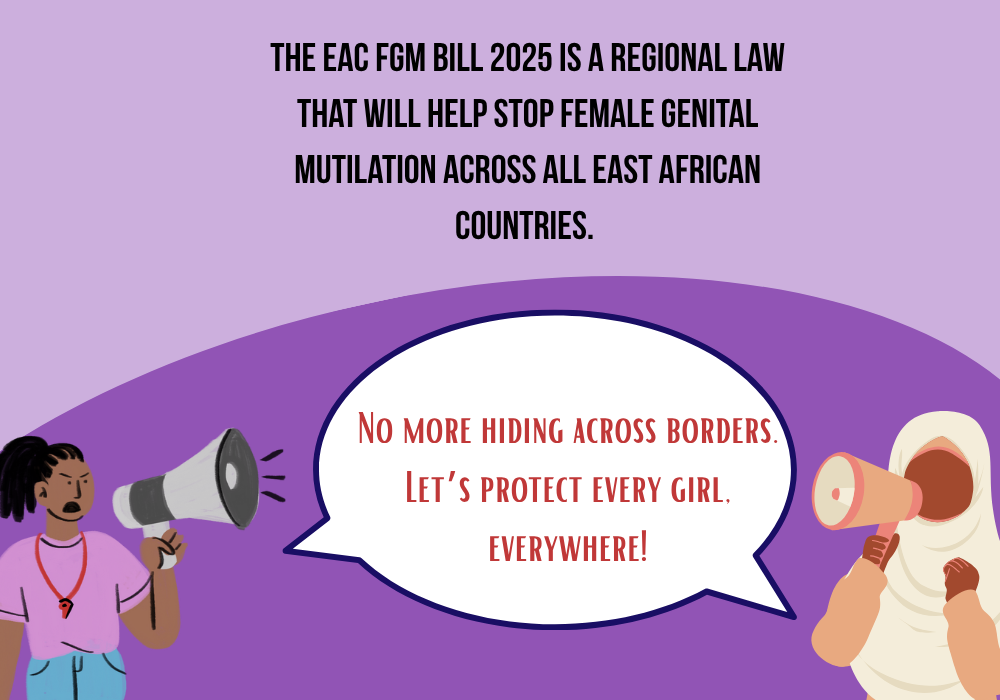By Yvonne Misando
On April 2025, the East African Community (EAC) re-tabled the Prohibition of Female Genital Mutilation (FGM) Bill marking renewed hope in a longstanding fight against one of the region’s most harmful traditional practices. Though the Bill has not yet been passed, its return to the East African Legislative Assembly (EALA) shows a strong regional commitment to ending FGM through a united legal front.
FGM continues to be a deeply rooted issue across East Africa. It causes lifelong physical and psychological damage, reinforces child marriage, and denies girls the right to health, education, and safety. While national laws exist in many countries, families often cross borders to escape prosecution. In such cases, a law in one country is not enough, regional action is necessary.
That’s what the EAC FGM Bill seeks to solve. It proposes harmonized legal definitions of FGM, bans the medicalization of the practice, and creates mechanisms for cross-border cooperation. This would make it harder for perpetrators to exploit legal loopholes and easier for survivors to access protection and justice regardless of where they live in the region.
This progress didn’t happen overnight. The Bill’s return is the result of relentless work by survivors, youth advocates, and civil society partners such as the UNFPA UNICEF Joint Program, Equality Now, and grassroots networks who’ve consistently raised the alarm. In their April 2025 statement, UNFPA and UNICEF called the re-tabling “great news,” as it renews political focus on protecting girls from FGM at a time when progress risks stalling (Source).
In Kenya, efforts to eliminate FGM are showing results. The Kenya Demographic and Health Survey (KDHS) 2022 shows a decline in FGM prevalence among women aged 15–49 from 21% in 2014 to 15% in 2022 (Source). Still, these gains are fragile, particularly in border areas where enforcement is harder and community norms remain strong.
The EAC FGM Bill is now undergoing regional legislative processes debates, readings and consultations. If passed by EALA, it must then be adopted by each member state into national law. This next stage is critical. It’s not enough for the bill to exist, it must be implemented, enforced, and supported by community education and survivor centered care.
Young people have a key role to play. Whether you’re a student, a content creator, an activist, or just someone who cares, your voice matters. Share the facts. Speak out against harmful practices. Demand that leaders move beyond talk to action. The law alone can’t change everything, but without it, we risk letting girls fall through the cracks.
The EAC FGM Bill 2025 is not yet law but it is a bold step forward. Let’s keep the pressure on and make sure it becomes more than a document. Let’s make it a tool for justice.

